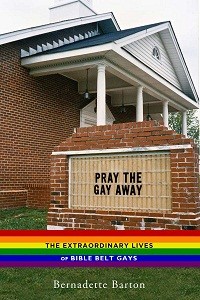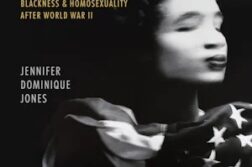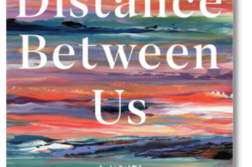 Real Man Adventures
Real Man Adventures
by T Cooper
McSweeney’s. 272 pages, $23.
Packaged to look like a cheesy, easy-to-read thriller for young boys, this memoir is anything but. It’s not a traditional memoir: it’s written in the form of autobiographical essays interspersed with interviews with the author’s friends and brother, drafts of letters, and self-interrogations. The forty-something T Cooper (who eschews any punctuation or first name) transitioned to male some years ago. Frequently complaining about his short stature and remarking that most people think he’s Puerto Rican (he’s Jewish), he often walks on eggshells in the town in which he and his family live, in the rural South, having relocated there from New York. What might an inquisitive eye see in the men’s restroom that could lead to a beating, or worse? How will previously pleasant neighbors react if and when they learn the truth? Will superficial friendships be replaced by looks of disgust, or worse? Cooper does not let the reader in on precisely what combination of surgery and testosterone he’s undergone, but at times he’s tremendously honest about medical terrors. What if lifelong testosterone use causes irreversible problems? What if he’s in an accident? What will happen to his wife and children, whose names he refuses to provide in order to protect their privacy? (However, if one glances at one of his earlier books, 2010’s The Beaufort Diaries, it is not difficult to discern who his wife is.) T Cooper’s writing style is fluid and—although his ironic misogyny can be a bit tiring, as can his incessant references to his wife and children—this memoir represents as an important contribution to contemporary transgender literature.
Martha E. Stone
 Pray the Gay Away: The Extraordinary
Pray the Gay Away: The Extraordinary
Lives of Bible Belt Gays
by Bernadette Barton
NYU Press. 273 pages, $27.95
Stories about clashes between Christianity and homosexuality in the Bible Belt appear frequently enough to suggest that this region must be the most homophobic in the land. And the link between religious intolerance toward gays and lesbians and social, political, and cultural oppression is not hard to understand. Thus it may not be immediately clear what sociologist Bernadette Barton thought she might find of interest when she set out to interview 59 lesbians and gay men living in the Bible Belt. Those interviews give sad and even shocking accounts of young people thrown out of their homes, threatened with death, attempting suicide, or permanently estranged from their families because they’ve chosen to come out. Barton promises that her analysis will “illuminate the lives and experiences” of people like her interview subjects, but as the book begins, she doesn’t offer more than glimpses of the obvious: “I argue that Bible Belt Christian attitudes create and maintain a homophobic status quo.” Barton does marshal a great deal of sociological and psychological theory to account for the attitudes and behavior of Bible Belt Christians toward lesbians and gay men. She applies Foucault’s concept of the panopticon—
total surveillance of everyone’s behavior by an unseen monitor—to the pervasive influence of fundamentalist Christianity, which forces many gays and lesbians to remain
in the “toxic closet,” as she refers to it (though it’s hard to see what other kind of closet there might be). Fortunately, in the closing pages, the author reflects eloquently on the deeper meaning of her subjects’ stories, which reveal their courage, creativity, and even compassion for those who persecute them. Stories like these,
she writes, can help to guide American
society out of the deep divisions which
currently beset us.
Stephen Kuehler






